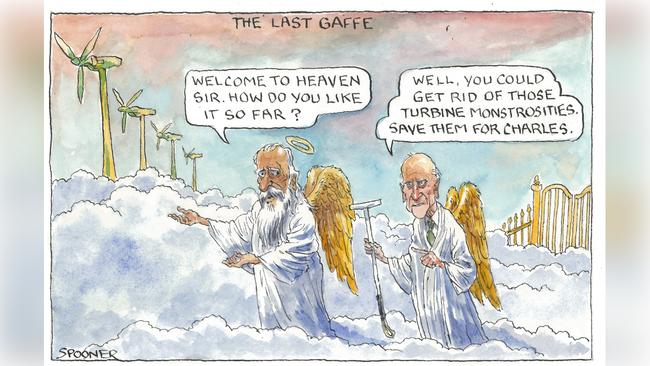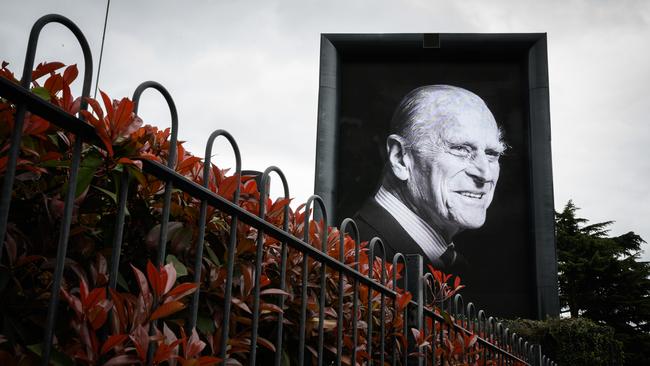Prince Philip: A life worth honouring; his duty discharged

The language may sound archaic now, as it did then, and the principles and duties the oath speaks to may sound more archaic still. And yet it is a testimony to the character of the duke that it was an oath he held to, honoured and otherwise discharged over the course of a life of public service, which only ended with his death on Friday.
There is, of course, no special surprise when a person dies at the age of 99. But there is perhaps some surprise at the outpouring of feeling that has greeted the duke’s death. Though the royal family asked people not to leave flowers outside the palaces, a steady stream of people has been queuing at COVID-safe distances outside the palaces in Britain to pay respects. And, in truth, this should not be a surprise. The duke was admired in his life, and is perhaps openly admired still more now, for a number of reasons.
Some of these are to do with his most obvious accomplishments. In recent days he has been praised once more for his service in World War II and for his bravery at sea, which saw him mentioned in dispatches. Elsewhere the heads of charities into which he poured his energies have praised his foresight as an environmentalist, his passion as a motivator of young people through his awards scheme, and for many other facets of his public life. Elsewhere, people have noted the challenges of his early life. But, in fact, outpouring of feeling has two main sources.
The first is the knowledge that for 73 years of marriage, and almost seven decades while his wife was on the throne, Prince Philip fulfilled his duty to the Queen just as she fulfilled her duty to the publics of Great Britain and the Commonwealth. It was on her 21st birthday that the Queen made her first great oath of allegiance to the people. On that occasion she said, “I declare before you all that my whole life whether it be long or short shall be devoted to your service.” For her whole life she has fulfilled that oath through unrelenting, faultless public service.
She has seen her country through the end of empire and the beginning of the Commonwealth, through massive societal and political change, all of which would have seemed more worrying than they were had one figure not always been there to provide continuity and assurance. Whether the Queen would have been able to do this without such a man as Philip at her side is theoretical. Because he always was by her side, and remained so until the end. Many people feel deep gratitude for a life of such devotion.
But the other reason the duke’s death has provoked such feeling is perhaps simply because of the sort of man he was, added with a fear that they don’t make them like that anymore.

It was always easy to parody the sort of man he was. For instance, he was regularly chewed over in the media for his alleged gaffes. In fact, most of these alleged missteps were very funny at their best and never anything worse than an expression of plain speaking. Walking ramrod straight of back even into his 10th decade it was easy also to dismiss him as an exemplar of an “unfeeling” older generation. When Tony Abbott nominated the duke for a Knighthood of the Order of Australia in the last decade, such criticisms of the duke poured out. “Anachronistic” was one of the words critics used most about the duke and the knighthood. And yet now we have had a few years to observe what comes after such “anachronisms” we may well miss them.
Is it better to have the attitudes of the Duke of Edinburgh, with his uncomplaining, keep-buggering-on attitude toward life? Or is it better to have the emotional resilience of certain other people who have married into the royal family of late?
Last year, even before her disgraceful interview with Oprah Winfrey, Meghan Markle told an interviewer: “I really tried to adopt this British sensibility of a stiff upper lip. I tried. I really tried. But I think what that does internally is probably really damaging. I’ve said for a long time to ‘H’ — that’s what I call (Harry) — it’s not enough to just survive something, right? Like, that’s not the point of life.”
According to that particular branch of the royal family the point of life is to move to California, cash in your connections, make podcasts and do voice-overs for Netflix series. The Duchess of Sussex was 38 years old when she expounded that world view. An age by which Prince Philip had survived the revolutions of his childhood, the battles of World War II and years of public service. At the same age Meghan had survived seven seasons of Suits.
Was it fun, all that unveiling of plaques, making endless small talk with strangers and otherwise seeing through the relative drudgery of actual royal life? Almost certainly not, though it clearly had its moments. But Prince Philip never complained. He never announced that he needed more “me time”, or wished to “thrive” more, or any of the other emotional incontinence that has flooded through our societies in recent decades. He recognised that in life there are things more important than your personal ease and that one of those things is public service. Especially in the service of one of the greatest and oldest institutions.
So it is right that people pay tribute to the departed prince. But it is also a good time to wonder whether the qualities he embodied might be better recognised, remembered and perhaps even emulated now that the liege man has gone.
Douglas Murray is associate editor of The Spectator and author of The Madness of Crowds: Gender, Race and Identity, among other books.





At the coronation service in 1953 the first person to swear allegiance to the newly crowned Queen Elizabeth II was her husband, Prince Philip, Duke of Edinburgh. In that vow, made kneeling before the new sovereign, he swore: “To become your liege man of life and limb, and of earthly worship; and faith and truth I will bear unto you, to live and die, against all manner of folks.”